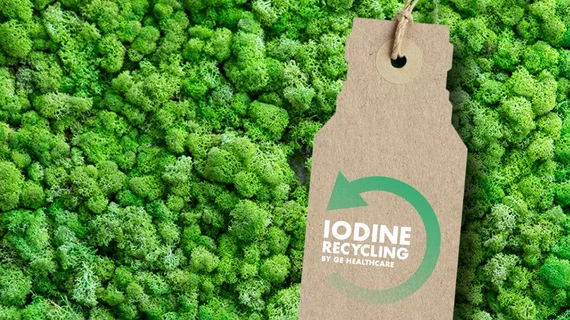GE Healthcare program recycles departments' leftover iodinated contrast for future use
As the healthcare industry looks ahead at how to avoid detrimental dilemmas in the supply chain of iodinated contrast in the future, GE Healthcare recently used the annual RSNA meeting to remind its customers that they have had the sustainability of this supply in mind for years prior to the most recent shortage.
In 2006, the company started an iodine recycling program for imaging departments that had leftover contrast that would inevitably go to waste at the end of the day if left unused. The program was initially launched in Norway, where GE’s Active Pharmaceutical Ingredients (API) facility is located but has since expanded to 11 countries across Europe, and in 2021, the program made its way into the United States and Canada.
As part of the program, GE Healthcare provides participating hospitals with 3-liter containers for staff to collect unused and uncontaminated GE iodinated contrast media in. Techs simply pour the leftover contrast straight from the injector syringe or bottle straight into the containers and then close the lid. Once the containers are full, they can be sent to GE Healthcare’s Norway facility.
Once received, that facility extracts iodine from the product and recycles it to create new contrast media without the need for additional iodine.
The company provides the boxes necessary for shipping, and any department that uses contrast products from GE Healthcare can participate. Some hospitals are reported to fill as many as three of the 3-liter containers per week.
Although this program has been available in the U.S. since 2021, the recent shortage of iodinated contrast media has put a greater emphasis on it and other initiatives intended to bolster the supply of the imaging agent. Outside of this program, GE Healthcare has taken numerous steps and invested hundreds of millions into securing the long-term availability of iodinated contrast, with the goal of producing an additional 30 million doses annually by the year 2025.
To learn more about the program, including how to participate, GE Healthcare recommends contacting a local sales representative or emailing iodine.recycling@ge.com.

